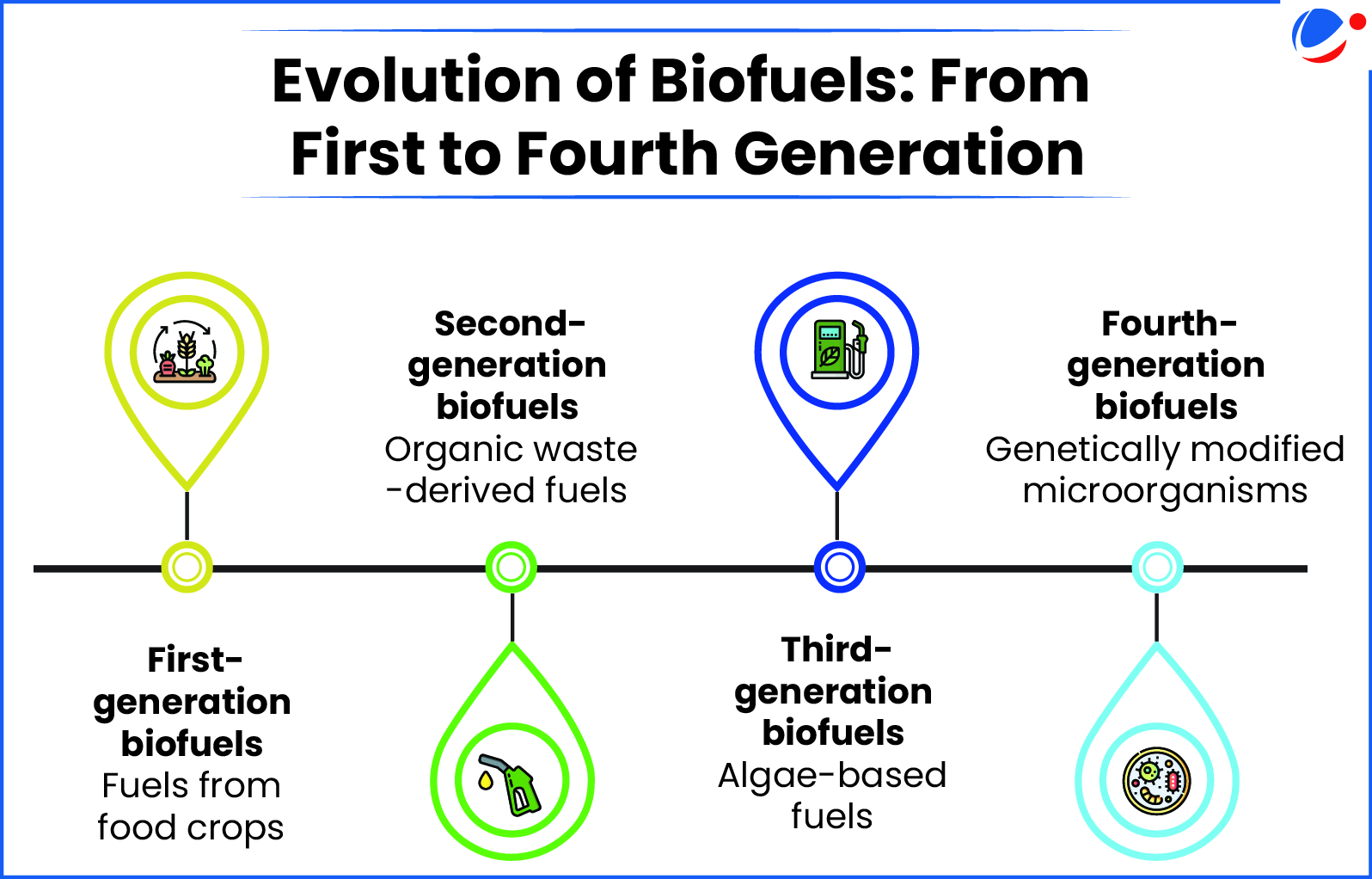Biofuels represent renewable energy fuels which are derived from organic sources such as biomass and organic waste.
- These can be broadly categorized in three types: Liquid Biofuels (ethanol, biodiesels, bio-methanol etc.), Biogas (Bio-LNG, Bio-CNG) and Solid Biomass.
- India has achieved 19.6% ethanol blending in petrol as of January 2025 and is on track to reach 20%, five years ahead of its original 2030 target.

Significance of Biofuels
- Fulfilment of Energy Demand: India accounts for more than a quarter of net global primary energy demand growth between 2017-2040.
- Environment Impact: Biofuel Promotion helped in reducing CO2 emissions by 519 lakh metric tons, and substituting 173 lakh metric tons of crude oil.
- Energy Security: Ethanol blending programme has reduced import dependency and saved Rs. 85,000 crore in foreign exchange.
- Circular Economy: Enables circularity by employing waste for wealth creation and delivering wider socioeconomic benefits.
- Rural Development: Provides additional financial incentives to farmers through development of market for agricultural residues/wastes.
Challenges in biofuel production
- Feedstock challenge: Lack of quality feedstock, competing demand for feedstock affecting food security and fragmented and complex waste supply chain.
- Technological: Negligible commercial viability of advanced biofuel production.
- Funding: High capital expenditure requirement and uncertainty of profit margins.
Key Initiatives
National Policy on Biofuels 2018, Pradhan Mantri JI-VAN Yojana, Galvanizing Organic Bio-Agro Resources Dhan (GOBARdhan), SATAT Scheme on Compressed Bio Gas etc.




